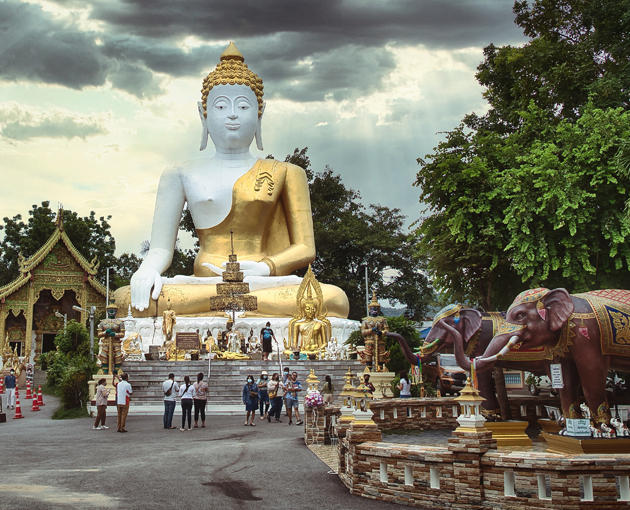In many parts of the world, the language we find in Scripture describing the worship of idols made of wood and stone seems very distant and foreign. Although idolatry is relevant to all of us in modern society, the idea of bowing down and worship-ping a literal idol feels uncomfortable—like it belongs to an ancient civilization. However, idol worship is still a dominant influence in many cultures and nations throughout the world. In Thailand, for example, it is highly evident and continually on display.
A while ago I visited a Thai friend. When I arrived, he was busy replacing his offering of fruit and water in front of the many idols in his house. Once he had refilled each glass with fresh drinking water and put new candles in front of each idol, he lit several incense sticks and prayed in front of each one. One area did not have a statue or a photograph, but he still refilled the water, lit a new candle, lit his incense, and prayed in front of an empty shelf. As I watched him pray to a blank wall, it made me feel significantly aware of the hopelessness of serving and worshiping spirits. In his mind, he was offering prayers to the spirit of his house and asking it to protect his family and help his business prosper. He shared with me later that day that he does this ritual every morning to ensure his family’s safety.
A common and devastating proverb that we often hear in Thailand is that “to be Thai is to be Buddhist.” Unfortunately, that has proven to be accurate up to this point. Driving in the streets of Thailand reveals massive, gold-plated temples with enormous man-made idols that stretch up to the heavens. These temples inhabit the center of every community, along with thousands of elaborate mini temples called spirit houses, prominently displayed in front of every house and place of business.
Recently, our Thai neighbors put up a brand-new spirit house and performed a ceremony to welcome the guardian spirits. Again reminded of the spiritual battles in Thailand, I was saddened to see the false hope the Thai people place in man-made objects to protect them. They built this spirit house because a member of their family was sick. A Buddhist monk had told them that their family member would recover if they made a spirit house.
I often drive through an impoverished community and come upon their elaborate, gold-enshrined temples. The temples represent hope; it is all they have. They will give what little money they have to the temple, believing it will earn them greater merit and bring them good luck in this life or a better reincarnation in the next. Every morning, incense fills the air as millions of Thai worship and pray in front of their spirit houses and invite spirits into their homes, families, and communities. It is spiritual enslavement that keeps them bound in fear and poverty. It is a false hope that has deceived an entire nation for centuries.
But still, there is hope! We have seen this false worship movement crumble time and time again before the presence of the one true living God! This year, we sent indigenous missionaries to minister within the unreached districts of Thailand, which had no existing church presence. Our missionaries moved into the midst of Buddhist communities and began to share the love of Jesus with them. Soon they had planted their first home church with seven brand new Christians. One woman, a believer for only a few days, had tears streaming down her face as she shared with the group that she had thrown away all the idols in her house.
“I only need Jesus. I only need Jesus,” she repeatedly said. The weight of her sin was finally gone, and the joy of genuine hope filled her soul.
No matter how entrenched a culture is in false worship, it only takes a single encounter with the one true living God to bring undisputed freedom to the oppressed.
by Kyle Christensen, First Missions Partner





